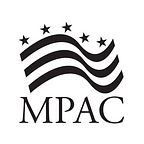Breaking Barriers: The American Muslim Woman Leading Antitrust Reform in America
As women around the nation stand up against discrimination and defy archaic expectations, it is crucial to recognize the contributions of Muslim women in America, who serve as prominent representatives of Islam in both the public and private sphere of life. Lina Khan is a trailblazer in competition law and antitrust regulation, serving as the youngest-ever chair of the Federal Trade Commission (FTC) and the first Muslim American to serve in this position. She is an inspiring leader with noteworthy contributions to law and policy. Khan is an outspoken antitrust enforcement advocate and is recognized — both at home and abroad — for her work.
Khan is an antitrust expert with groundbreaking scholarship and leadership that shapes the discourse around antitrust reform. She rose to prominence after publishing an article in the Yale Law Journal in 2017 titled “Amazon’s Antitrust Paradox,” which argued that the traditional antitrust framework was inadequate to address the market power of tech giants like Amazon. Antitrust work ensures that American consumers are protected from predatory business practices and fortify practices of fair competition. Her research on the “New Brandeis Movement” is particularly remarkable in advancing antitrust enforcement and promoting competition and economic growth. The movement is named after Supreme Court Justice Louis Brandeis, an advocate for antitrust law in the early 20th century. The campaign seeks to strengthen antitrust enforcement, particularly in the tech sector, by promoting competition and innovation. Her research has been published in leading law journals in the U.S.
In addition to her groundbreaking legal scholarship, Khan plays a critical role in policy and leadership. Before being appointed the chair of the FTC, she served as the legal advisor to the FTC and worked as counsel to the House Judiciary Committee’s Subcommittee on Antitrust, Commercial, and Administrative Law.
Historically, socio-cultural barriers, including workplace discrimination and patriarchal exclusivity, have prevented Muslim women from entering positions of power. Although women are gaining more representation in conversations and spaces, there is a need for both institutional and cultural changes that hinder women from reaching these positions of influence. The Center for Strategic and International Studies suggests that oftentimes women do not receive high-ranking positions or the recognition they deserve albeit their qualifications because they are not given the chance to perform in leadership opportunities. Additionally, women tend to be overlooked as experts, especially in the policymaking arena, as they have a tendency to share credit for accomplishments, which in turn creates a vicious cycle of self-imposed negative assumptions about their ability to succeed in these spaces.
In recent years, Muslim women have been breaking through the glass ceiling and paving a shift toward an increased representation of Muslim women in government. Lina Khan is a prominent figure in American politics and inspires many Muslim women to work in public policy and effect change. Khan’s contributions and success are a testament to her perseverance.
As an organization, MPAC seeks to continue uplifting women, especially American Muslim women who face unique challenges in our society, celebrating their vast achievements and sharing their stories. We have historically led essential conversations, such as partnering with the White House to host a Women’s Forum, and, remain, advocates for women to seek more prominent roles in any field from government to entrepreneurship. In the past, it has been difficult for women to reach positions at top levels of policy institutions. However, American Muslim women, like Lina Khan, are changing that one step at a time.
